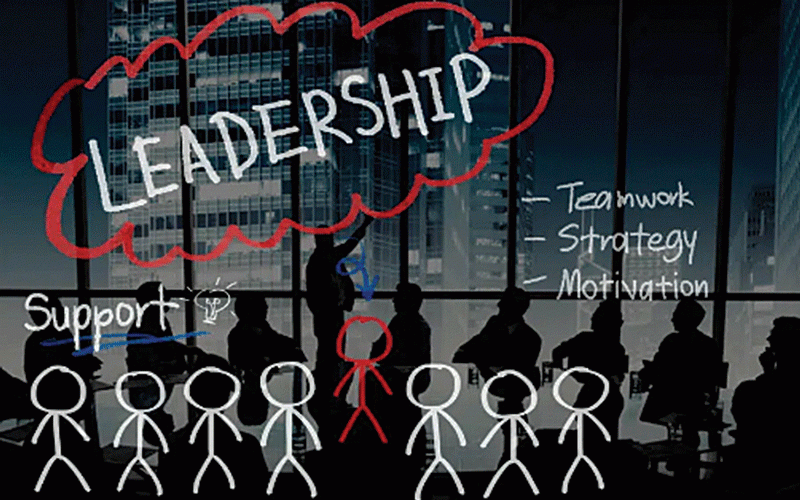
THE value of being organised can be acquired from the way precolonial African communities had clear, well-defined, well-supported and protected pathways of sharing knowledge from one generation to the other.
For instance, gender issues had recognised knowledge and expertise passed from one age group to the next age group, depending on different maturity levels. The same applies to entrepreneurship in mass markets.
Although Western governance systems have disrupted traditional systems, in most rural communities, leadership is still well-defined from household head, village head, headmen and then to the chief. Clearly defining roles and responsibilities of each of these levels simplifies socio-economic and environmental planning including resource-sharing.
How has chaos been introduced in African communities and ecosystems?
The introduction of different institutions trying to manage the same communities and resources has caused too much chaos in African communities and food systems. For instance, political parties have introduced their own structures, while non-governmental organisations have done the same by dividing districts into development area programmes in which some people are classified as vulnerable households. Government structures like different ministries have also been introducing their departments to compete with traditional structures that have existed for generations.
On the other hand, private companies introduce their own structures like contract farming models which tend to be selective. As if that is not enough, some development organisations bring food aid while others introduce gender-based violence irrespective of existing culture. Religious organisations bring their own structures like deaneries and parishes, among many others.
The confusion brought by diverse institutions and practices vying for relevance leaves communities very confused. And the situation is worse in the agriculture and food systems space where climate-sensitive practices like agroecology are being promoted to roll back the influence of conventional agricultural practices that are well-resourced to suppress alternative practices. Within all these diverse institutions and practices are diverse sets of knowledges and expertise. Extension officers end up confused in terms of which practices and knowledge to use in developing communities.
How is knowledge and expertise generated and used for community development?
- Open letter to President Mnangagwa
- Feature: ‘It’s worse right now than under Mugabe’: Sikhala pays the price of opposition in solitary cell
- Masvingo turns down fire tender deal
- Human-wildlife conflict drive African wild dogs to extinction
Keep Reading
Given the multiplicity of institutions and practices, how can knowledge and expertise be generated and utilised for community development? While the formal education system has curricula, what has made implementation of what is learned difficult is a chaotic ecosystem with different structures within the same community. Formal education becomes redundant in chaotic ecosystems because it is not applicable to local communities. For instance, where can geography, history, commerce, mathematics and other subjects be applied at community level in an organised way? Besides being used in calculating change when buying and selling commodities in the market, there is nowhere where you find the complexities of mathematics being implemented in communities.
More importantly, African countries have not invested in understanding the skill-base comprising traits, talents and passion that can be packaged for use in unlocking value from existing abundant natural resources. There are no institutions responsible for packaging community expertise. Should this be done by traditional leaders, political leaders or government departments? Due to absence of clarity, communities and important ecosystems like mass markets remain chaotic. For instance, policymakers and local authorities are not able to define what is in the mass market in terms of skills and expertise. Everything remains scattered yet it could be packaged to support growth pathways. It is critical to know who is doing what? What type of knowledge do they have and what type of knowledge do they require to grow beyond their current status and expertise?
Need to understand the underground economy — information comes first?
If you want brilliant ideas to work, create order and collect information first. A large portion of African economies has remained underground because there have not been efforts to generate a deep understanding of socio-economic, environmental and political drivers of this economy. Knowledge, information and expertise systems that can inform and direct investments should come first. Absence of such systems is one big challenge in how to link the formal education system with the existing economy. Inasmuch as there is useful content in curricula and graduates, there are no system to direct graduates where they can apply their education and acquired knowledge. Conversely, the colonial economy had systems under which companies were carefully profiled in line with their work.
This formal system, well-packaged system, made it easy for diverse graduates to choose career paths.
Now that African countries have a new emerging economy dominated by SMEs whose ecosystems have not been properly packaged, it is difficult to know where skills of engineering graduates, economists and others are needed. When 90% of African food systems are driven by SMEs and smallholder farmers, how can African economies tap into mass markets to create employment for diverse graduates so that they can develop career paths?
Those who studied supply chain and logistics should find a career in mass markets, the same applies to agricultural economists given the extent to which the reality of agricultural economics is visible in mass markets. Statisticians and food scientists should also be present in mass markets not in the laboratory. All these experts should use their knowledge, passion and expertise to understand and institutionalise this unique industry in ways that show horizontal and vertical employment opportunities like value addition, digital extension and big data which are major contemporary themes. Emphasis should not be about formalisation, which kills innovation by assuming that everything informal is inferior. It should be about recognising, supporting and protecting what is working and has been working for decades.
Case for broadening the mandate of municipalities and rural district councils
A knowledge and information generation thrust can be built on existing pre-colonial institutions like municipalities and rural district councils that should have full-fledged departments devoted to understanding this huge emerging economy. In mass markets, information and knowledge pathways are within farmers and traders especially in undocumented ecosystems like mass markets. Local authorities can easily capture this information to inform government departments. Sustainability starts with knowledge and information generation because without earning income and re-investing in an agriculture-driven economy, there is no resilience and sustainability especially under a changing climate. If data collection systems are provided, to what extent can municipalities and rural district councils, capture and share development information timely?











